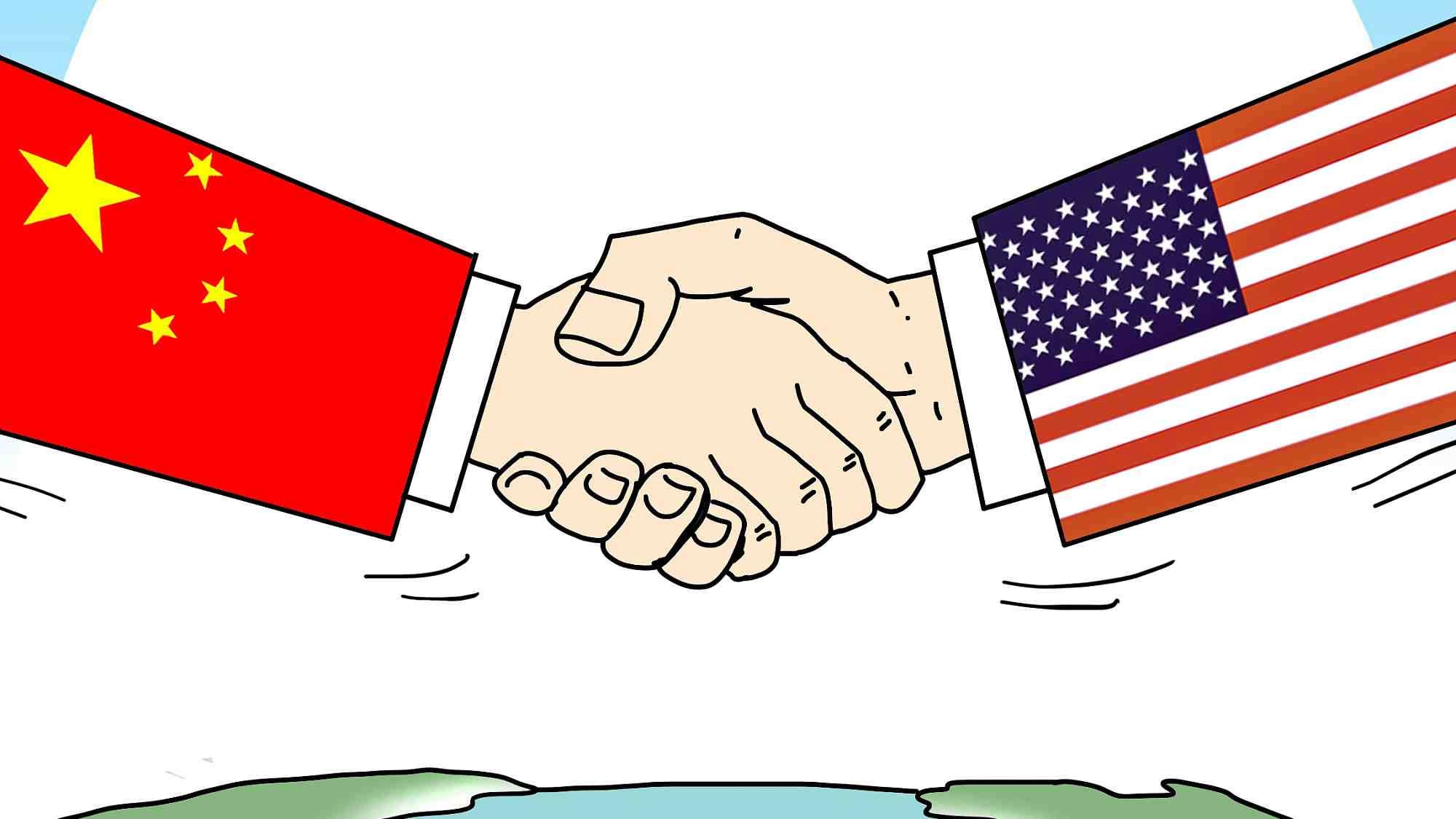03:02

Editor's note: Lawrence H. Summers is the former U.S. Secretary of the Treasury. This is an excerpt of his speech at the Understanding China Conference 2020, held in Guangzhou, China, in November. The article reflects the author's opinions, and not necessarily the views of CGTN.
It seems to me that your country's future, how it defines its greatness, your country's future in relation to my country is going to be important and determinative of the history of the 21st century. It also seems to me that crucial decisions are likely to be made in the next few years.
I can imagine some areas in which the United States prospers and China prospers. I can imagine scenarios in which the United States runs into great difficulty, and China runs into great difficulty and tension. I find it much harder to imagine scenarios in which the United States succeeds while China fails, or where China succeeds while the United States fails.
I have an image that I carry in my mind, and I think about the relationship between our two countries. It's of two individuals who have a long and tangled past with each other with some good and not so good memories who find themselves in a lifeboat in a turbulent sea, a long way from shore. They did not really have the luxury of working through their mutual frustrations with each other. Neither can really afford to succeed in avenging their grievance with respect to the other. Instead, both need to row and to row in unison if they are to make it through that turbulent sea to the shore.
It is not a matter of generosity. It's not even a matter of cooperative spirit. It is a matter of recognition of reality and the development of respect for mutual interest in a situation in which they find themselves. And that, I would suggest, is the situation of the United States and China. We need to be realistic. We have very different conceptions, as nations, of how a society should be organized, and of how a society should be governed. We are not going to resolve those philosophical differences. Nations are going to make their own choices as to how they organize their societies.
To be sure, they are going to look to the examples we represent. And the success that each of us has as societies in delivering for our people is going to be enormously influential around the world. And in that sense, we are going to compete importantly as examples. I believe that our system's example is going to prevail in that competition. Just as I would expect that my Chinese friends might believe in the superiority of your system and the example it represents.
So, we are going to be engaged in competition. We are also going to have different views on specific issues, whether those specific issues involve islands in important parts of the Pacific Ocean or whether those issues involve what exactly should be done within an international institution. But like those two oarsmen in that boat a long way from shore, we are going to have to find ways of working through those issues to find resolutions that are not the choice we would prefer if it was only up to us, or the choice that you would prefer if it was only up to you.
What are some of those issues? The long-term future of humanity is an issue with respect to how we treat the one planet that we have. What happens to the emission of carbon dioxide and other greenhouse gases is going to determine the way in which our great grandchildren live. There is no question that we can't afford to continue to use coal and fossil fuels in the way that we have been using them. What choices we and you make, with respect to how we produce energy, how we consume on energy, how we structure our societies, will be profoundly important.
Your country's commitment recently with respect to target dates for moving to zero emissions was very welcomed. But of course, with respect to very long-run goals, it's important to know how we are going to be able to judge what kind of progress is being made. Our country has not distinguished itself on these issues in the last few years. But I am optimistic that in a new political environment, we will do much better.
01:58

COVID-19 pointed out what is the major threat to humanity: pandemic disease. It is not the first major disease, just think SARS and Ebola. And it will not be the last.
It must be said that the progress that the world seems to be making toward finding a vaccine is extraordinary. And while your society has adjusted and taken very powerful steps toward putting COVID-19 in the rear-view mirror, this has not been an easy period. We are going to have to find ways of making sure that in the future, the kinds of conditions that can give rise to this disease and its leap-frogging from animals to humans are much more heavily regulated than they have been in the past.
We are going to need much more satisfactory commitments and absolute policies of information-sharing globally at the first indication of possible risks from pandemic disease. And we are going to have to learn from each other about how and when pandemics start to slow their spread.
01:34

There are also large economic challenges in this moment. China has done a remarkable job of restoring economic growth and progress after the difficulties of last winter. The restoration of economic growth has been slower in the United States and many other Western countries. We are going to need to find ways of cooperating in the economic area, particularly with respect to developing countries. Many of them are facing very large challenges, because they don't have the domestic resources to do the kinds of things that the United States and China have done.
Now, China has a rich and strong economy with great financial institutions. The process of working through debt issues in emerging markets is another priority for the near future.
02:31

Perhaps the most challenging set of issues in this post-COVID-19 world involves technology, flows of data and artificial intelligence. There needs to be boundaries in separate spheres. Because so often, data and data processing are sensitive information for national security. But, they are also important areas of cooperation. If humanity is to be the master of artificial intelligence rather than being mastered by artificial intelligence, if all societies are to have a chance to move forward, we are going to need to be able to work through those issues.
There are some who believe that the diplomacy between our two countries cannot work. I reject that view. Whether the issue is climate, whether the issue is the dramatic changes and narrowing of your current account surplus over the last decade, whether the issue is the substantial increase of accessibility of your country and my country to investment from the other country, whether the issue is your enhanced participation in UN peacekeeping, or in the international financial institutions, much has been accomplished through frank and diplomatic dialogue. We are going to need much more of that in the years ahead.
I believe it is an illusion that one of us is going to converse the other, or that one of us is going to destroy or vanquish the other, or that one of us is going to emerge uniquely supreme in the world is the enemy of cooperation. Mutual respect, mutual dialogue and setting a course together in areas where history and practicality yoke us together on that lifeboat has to be the approach forward for China and the United States in the post-COVID-19 world.
(If you want to contribute and have specific expertise, please contact us at opinions@cgtn.com.)

